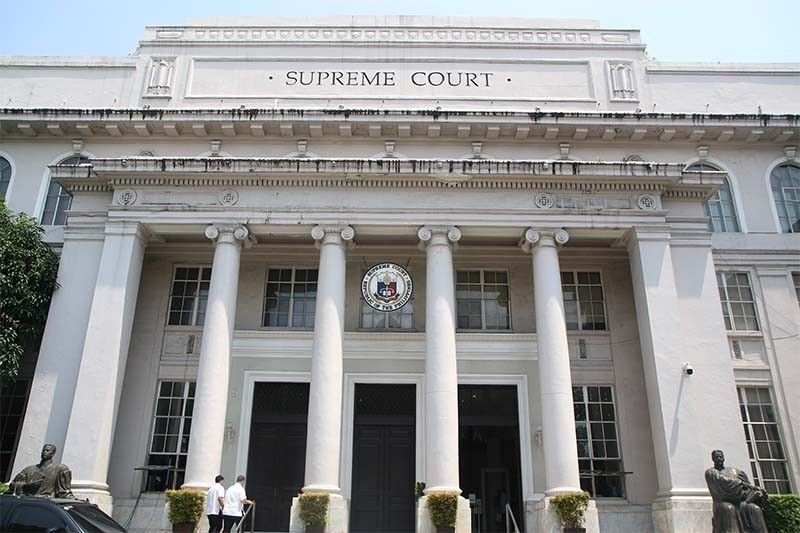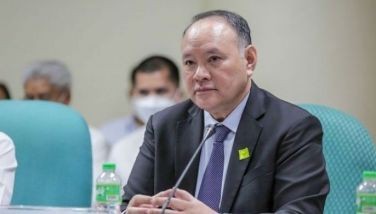SC bars ex-NEDA exec Romulo Neri from holding public office over NBN-ZTE deal

MANILA, Philippines — The Supreme Court has barred former National Economic and Development Authority director general Romulo Neri from government service after it found him guilty of grave misconduct over the botched $329-million national broadband network (NBN) deal with China’s ZTE Corp.
In resolving Neri’s Petition for Review on Certiorari, the SC’s Third Division reversed the Court of Appeals ruling that found Neri guilty of simple misconduct.
“Petitioner Romulo Neri is dismissed from service, which includes the necessary penalties of cancellation of eligibility, forfeiture of leave credits and retirement benefits, and perpetual disqualification from reemployment in the government service,” the SC said in a ruling penned by Associate Justice Marvic Leonen.
The SC said it shall respect the Ombudsman’s findings of fact and held that the CA erred in deeming it as simple misconduct, “seeing as how the elements of corruption and clear intent to violate the law are quite patent.”
“Petitioner actively brokered for ZTE’s bid by using his public position despite knowing the corruption involved in the project. There is no cogent reason to justify the lowering of liability to simple misconduct,” it added.
Neri was the director general of NEDA during the administration of then-President Gloria Macapagal-Arroyo.
The decision was dated July 5 but only made public on Thursday. Associate Justices Ramon Paul Hernando, Henri Jean Inting, Ricardo Rosario and Jhosep Lopez concurred in the ruling.
Ombudsman findings and CA ruling
Records showed that Neri had introduced whistle-blower Rodolfo Lozada Jr. to former Commission on Elections chairman Benjamin Abalos, described in the CA decision as the person “highly interested in pursuing a telecommunications project with the government” during the administration of Arroyo.
Lozada was Neri’s technical consultant for the NBN-ZTE deal.
Neri then processed the approval of the NBN project with ZTE as the proponent amid allegations that Abalos offered him a P200-million bribe.
In 2009, the Office of the Ombudsman found Neri guilty of misconduct and suspended him with six months without pay.
It said that while Neri did not solely approved the deal he “was deemed to have mediated—through the NEDA—between Abalos and ZTE.”
“It was also deemed highly improper for Neri to entertain Abalos by attending meetings, conferences, and golf games with ZTE officials,” the court, referring to the Ombudsman findings, said.
Neri appealed the ruling but the Ombudsman denied his motion for reconsideration, prompting him to elevate it to the Court of Appeals.
In July 2013, the CA found Neri liable for simple misconduct and directed him to pay a fine equivalent to six months’ salary.
The CA found that the misconduct not grave as Neri did not approve the project for his own benefit, or that the recommendation was tainted with corruption.
It also said it did not find proof that Neri accepted the bribe. The appeals court also “gave credence to other testimonies which showed that Neri had no choice but to approve the project as direct order from Arroyo,” the SC ruling read.
Neri filed a motion for reconsideration but was denied. He then filed a Petition for Review on Certiorari before the SC.
Grave misconduct
The former NEDA official argued before the high court that the CA erred when it found it guilty of simple misconduct as “having dinner with ZTE officials and playing golf with Abalos are harmless acts.” He also said he rejected the bribe Abalos offered.
Neri also told the SC that he cannot stop the evaluation of ZTE’s bid as the NEDA had to automatically review it.
He added that he “merely followed the President’s (Arroyo) advice ‘to refuse the bribe offer… and just proceed with the processing of the… project.” He claimed that he acted in good faith in obeying orders of the president, who sits as chair of NEDA.
In resolving the petition, the SC explained: “Misconduct may be grave or simple. Grave misconduct is qualified by: (a) corruption; (b) clear intent to violate the law; or (c) flagrant disregard of an established rule. If none of these elements are present, the misconduct is only simple.”
“Here, there is substantial evidence supporting the charge of grave misconduct against petitioner. The facts show that his conduct was attended with corruption and a clear intent to violate the law,” the SC held.
The high court also disagreed with Neri’s downplaying of his admission that he went to dinner hosted by Abalos, Chinese embassy officials and ZTE officials. It pointed out that the dinner “was no ordinary meeting.”
“Petitioner cannot escape culpability by saying that accepting such invitations are ordinary diplomatic protocols. As public respondent points out, petitioner failed to show that the dinner was arranged for an official function. Worse, he could not account for why Abalos and ZTE officials were present in the dinner,” it added.
The SC also stressed that as NEDA director general, Neri had power over the approval of ZTE’s bid. “Hence, petitioner’s meeting with the ZTE officials, who were heavily interested in the project’s approval, raised questions on his integrity and fairness in the award of the bid,” it added.
The high court also rejected Neri’s argument that he merely followed Arroyo’s orders and said he cannot pass liability to the president.
“His vote and opinion on the matter must be viewed separately from the President’s. His roles as the director general of the agency and the vice chair of its board cannot be emasculated as a powerless position, blindly following the President’s orders,” it held.
“All these make it clear that petitioner committed grave misconduct,” the SC said.
- Latest
- Trending






























